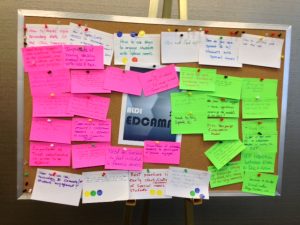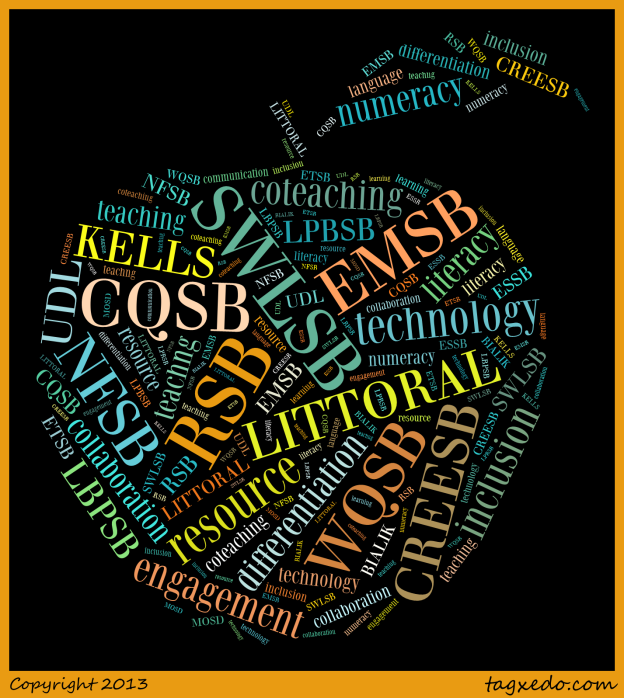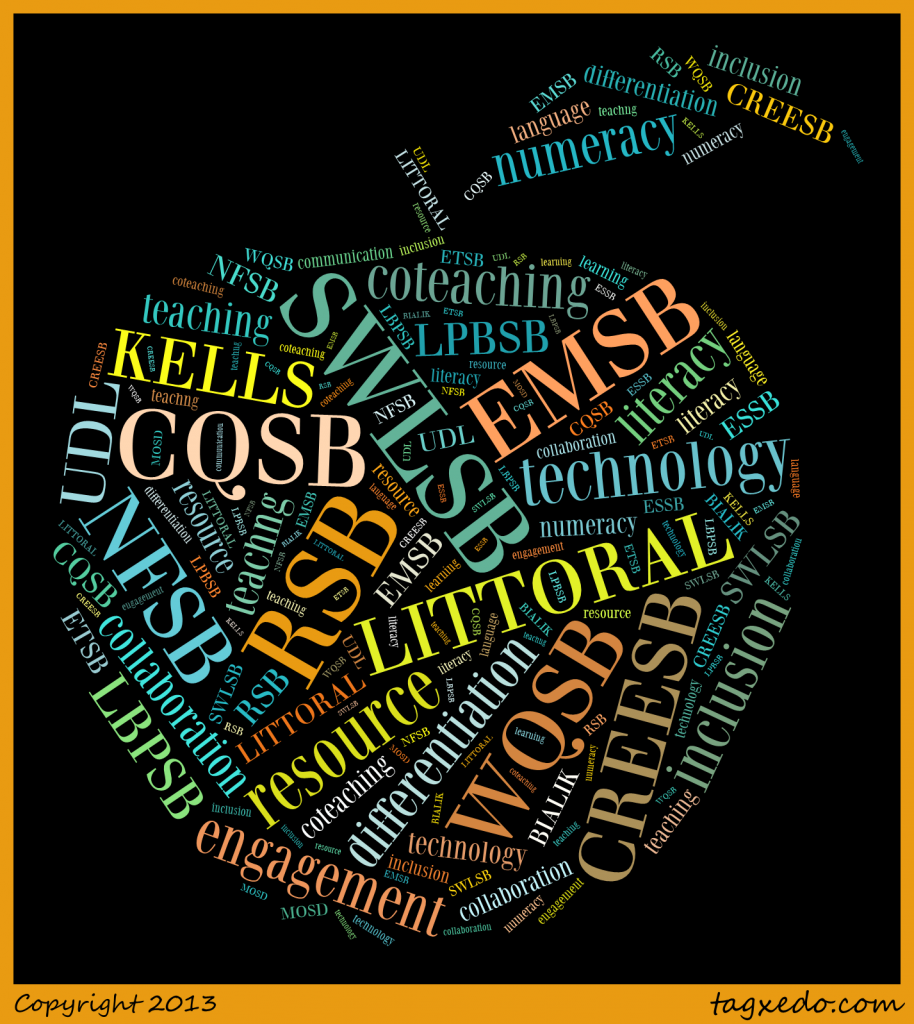 We’re busy preparing for the upcoming ALDI Symposium on September 24th and 25th, 2013. It promises to be an inspiring event featuring professional development in four strands: literacy, numeracy, assistive technology and resource models.
We’re busy preparing for the upcoming ALDI Symposium on September 24th and 25th, 2013. It promises to be an inspiring event featuring professional development in four strands: literacy, numeracy, assistive technology and resource models.
The symposium program is available here:
Symposium_Flyer_Final_2013
Each year we welcome approximately 250 resource teachers from the nine English boards, who engage in interactive sessions and discussion surrounding cutting-edge topics in teaching and learning for students with special needs. A special welcome goes out this year to teachers in the Adult Education sectors in each of our boards.
We thank our school boards, CEGEPs and universities who have submitted proposals from across the province. The two-day program is packed full of sessions, sure to motivate, engage and build knowledge and skills!
We have some exciting keynotes this year:
Dr. Tara Flanagan is a professor in the Department of Educational and Counseling Psychology at McGill University. She will be discussing the connections between transition planning, inclusive education, and social inclusion for people with disabilities.
Mr. Frederic Fovet is Director of the Office for Students with Disabilities at McGill University. He will be discussing the Universal Design for Learning framework and its application in the classroom.
In addition, Dr. Marian Small from the University of New Brunswick will be providing in depth professional development sessions on supporting struggling students in upper elementary and secondary mathematics.
Just a sample of our sessions:
- Daily 5 Math-a model for differentiation (numeracy)
- Digital storytelling for the 21st century resource teacher (technology)
- Introduction to ALERT self-regulation training (resource models)
- Literacy and language in the work-oriented training path classroom (literacy)
- iPad apps resource guide for adults with special needs (technology)
- Non-fiction texts to support writing (literacy)
- ALDI edcamp-an “unconference” within our conference (resource models/professional development)
- Session for resource teachers new to the role (resource models/professional development)
- Literacy, numeracy and mental health: Helping students get better grades by focusing on emotional competency (literacy/numeracy/mental health)
And don’t forget our exciting onsite exhibitors…plenty of resources to access while attending the symposium.
Register here for the symposium and to access all session descriptions.






 A new professional development opportunity is in the works…and its coming to the ALDI 2013 Symposium!
A new professional development opportunity is in the works…and its coming to the ALDI 2013 Symposium!